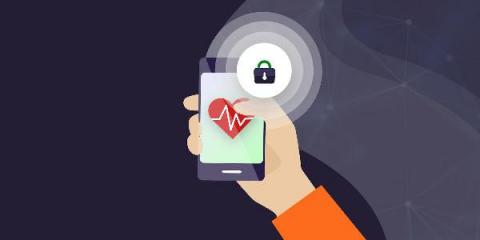Systems | Development | Analytics | API | Testing
Healthcare
Why Should Data Privacy Be The #1 Concern Of Every Health App Developer?
We dare you to go to your mobile device and search for a health and wellness app already installed. Truth is, even if you did not actually download it, your operating system most likely came with at least one app like that. Now, you might have chosen to delete such an app, in which case, we lost the dare. But it does not deny the fact that your mobile device, the very one that lets you shop, communicate, work, or travel, has just as much potential to assist in your well-being.
Building HIPAA Compliant APIs
Legal disclaimer: Nothing stated herein is legal advice. It is provided for informational purposes only. You should work closely with legal advisors to determine exactly how HIPAA may affect your business. Health care represents 17% of US GDP, around $4 trillion in 2020. COVID has normalized the use of remote medicine and accelerated the dispersion of health care away from doctors’ offices and hospitals, to services being delivered on smartphones and online apps.
The Biggest Threat to the Security of Healthcare Data
When cyberattacks take out business systems, organizations suffer from direct and indirect financial losses. When healthcare systems go down, it’s a matter of life and death. Healthcare organizations were already a frequent target of cybercriminals, and the pandemic has made this situation worse. Infosecurity Magazine reports that healthcare data breaches will increase by 3x in 2021, at a time when so many healthcare providers are burnt out and exhausted from battling the pandemic.
What It Actually Means to be HIPAA Compliant
The Health Insurance Portability and Accountability Act, or HIPAA, is a federal regulation in the United States that protects healthcare data containing personal health information, or PHI. It also covers Electronic PHI, or E-PHI, which are digital records of this information. The ability to effectively using healthcare data is essential for improving patient outcomes, quality of care, resource allocation, revenues, and other operations.
Healthcare and Life Sciences Digital Trends for 2021
For healthcare and life sciences organizations, 2020 began like many other years. They looked to the year ahead and focused on how to best serve their patients, members, and other constituents through their latest innovation. As we now know, nothing about 2020 was ordinary, especially for leaders within these industries.
The role of data in COVID-19 vaccination record keeping
The role of data in COVID-19 vaccination record keeping Now that the Pfizer vaccine has been approved by the FDA for use in the US, and the Moderna vaccine likely isn’t far behind, we are now on the verge of being able to emerge from the social distancing world that began earlier in 2020. Recent news has talked about distributing a vaccination record card to everyone who gets a COVID-19 vaccine.
Why Global Life Sciences Leaders See Automation as a Top Priority
For life sciences organizations today, COVID-19 and an increasingly complex regulatory landscape are spurring an urgent need to launch new applications–fast. Yet a number of challenges stand in the way, including complex business processes, concerns about data security and integrity, and even just knowing where to begin on the right tech solution to put in place.
Automating Healthcare Data to Improve Patient Outcomes
Healthcare organizations like yours are riddled with mountains of data and document streams coming in each day. Whether it’s patient records, claims, denials, remits, or clinician credentials… the list goes on. All these items can quickly create chaos and confusion without proper organization protocols in place to handle this data deluge. When employees are tasked with manually handling inbound document management, there is the potential for a wide array of complications, including.
Meeting Medical Device Data Privacy, Governance, and Security Challenges
Medical devices have become increasingly complex as technology evolves, and the sheer number of these devices now being worn or implanted has grown exponentially over the past few years. There are currently over 500,000 different types of smart, connected medical devices in use that have the ability to collect, share, or store private patient data and protected health information (PHI)(1).







